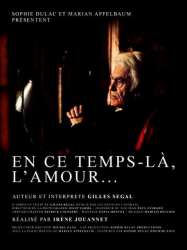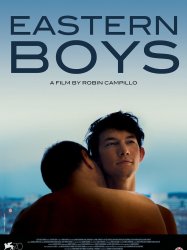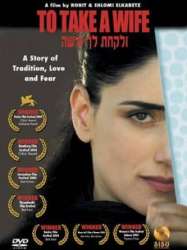Sophie Dulac Distribution

If you like this company, let us know!
Sophie Dulac Distribution est une société de distribution cinématographique française fondée par Sophie Dulac et Michel Zana en 2003. La société distribue en salles 10 à 12 films par an et son catalogue compte aujourd’hui plus d’une centaine de films art et essai.
Sophie Dulac Distribution collabore avec des réalisateurs français et internationaux parmi lesquels: Ronit Elkabetz, Raphaël Nadjari, Rabah Ameur-Zaïmeche, Merzak Allouache, Theo Angelopoulos, Robin Campillo, Nicolas Klotz, Jacques Doillon, Andreas Dresen, Srdjan Dragojevic, Emmanuel Finkiel, Philippe Ramos, Jessica Hausner, Christophe Honoré, Jhonny Hendrix Hinestroza, Georg Maas, Lech Majewski, Roger Michell, Pan Nalin, Calin Peter Netzer, Sébastien Pilote, Rafi Pitts, Pablo Larrain, Katell Quillevéré, Philippe Ramos, José Luis Rugeles, Jan Schomburg, Claire Simon, Christian Schwochow, Alexandre Sokourov, Whit Stillman, Hong Sang-Soo, Béla Tarr, Margarethe Von Trotta, Wang Xiaoshuai, Raoul Peck, Amos Gitaï, Andrea Segre, Semih Kaplanoglu, Emily Atef...
Depuis sa création, Sophie Dulac Distribution a également distribué de nombreux films documentaires dont La Danse, Le Ballet de l’Opéra de Paris, Benda Bilili !, Le Concours, At Berkeley, National Gallery, Fix ME, La vierge, les coptes et moi, Le Bois dont les rêves sont faits, Mr Gaga, Sur les pas d’Ohad Naharin... Dernièrement, le film I Am Not Your Negro, du réalisateur haïtien Raoul Peck - distribué en salles le 10 mai 2017 - a reçu en 2018 le César du Meilleur Documentaire. Présenté au dernier Festival de Berlin en février 2018, le nouveau documentaire de Claire Simon Premières solitudes, produit par Sophie Dulac Productions, sera distribué à l’automne 2018.
Sophie Dulac Distribution s’engage régulièrement sur des premiers films : Ronit Elkabetz, Eran Kolirin, Joshua et Ben Safdie, Katell Quillévéré, Namir Abdel Messeeh, Avishaï Sivan, Cristian Jimenez, Raed Andoni, Laurent Perreau, Eva Ionesco, Joshua Z Weinstein, Zhang Tao, David Volach, Jan Schomburg, Asaph Polonsky, Sharon Bar Ziv, Alejandro Fernandez Almendras, Rodrigo Moreno, Gaya Jiji….
La société distribue ponctuellement du cinéma de répertoire : Lola de Jacques Demy, Le Roi et l’Oiseau de Paul Grimault et Jacques Prévert, Un homme et une femme de Claude Lelouch, Lola Montès de Max Ophuls, L’Armée des ombres / Le Cercle Rouge / Le Doulos / Un Flic de Jean-Pierre Melville ou encore Jeux interdits de René Clément.
Best films
Filmography of Sophie Dulac Distribution (8 films)
Production

Young Solitude (2018)
Directed by Claire Simon
Origin France
Genres Documentary
Themes L'adolescence, Films about children
À 16-18 ans, si on a de la chance, on est au lycée. Ici on est à Ivry et on discute entre les cours, même parfois pendant les cours. Assis dans les couloirs, dehors sur un banc ou sur un parapet avec vue sur la ville, les jeunes gens dialoguent à deux ou à trois. Ils découvrent leurs histoires respectives, celles dont ils héritent, racontent leur famille, leurs passions et aussi leur solitude. À cet âge-là, chacun voit le moment où il faudra quitter sa famille, quand elle existe… ou la fuir encore plus quand elle est toute cassée. Être seul, c’est bien et c’est mal. On cherche, on en discute.

En ce temps-là, l'amour... (2004)
Directed by Irène Jouannet
Origin France
Genres Drama
Themes Théâtre, Films based on plays
Actors Gilles Ségal
"En ce temps-là, l’amour était de chasser ses enfants". Ainsi commence le récit qu’un vieil homme entreprend devant un magnétophone à l’attention de son fils parti vivre aux Etats-Unis. Après avoir longuement hésité, il se décide enfin à raconter un souvenir gravé à jamais dans sa mémoire : l’étrange spectacle d’un père et de son jeune garçon dans le wagon qui les emmenait en déportation. Et surtout l’extraordinaire volonté chez cet homme de profiter de chaque instant pour transmettre à son fils l’essentiel de ce qui aurait pu faire de lui un homme.
Distribution

Up the Mountain (2019)
, 1h35Directed by Sébastien Betbeder
Origin France
Genres Comedy, Comedy-drama
Actors William Lebghil, Izïa, Bastien Bouillon, Jérémie Elkaïm, François Chattot, André Wilms
Hugo rentre dans le village de son enfance dans les Alpes. Son frère est décédé. L'enterrement de son frère est l'occasion pour Hugo de retrouver Stan et Bérénice, deux amis dont il ne se séparait pas enfant. Les trois amis vont partager leurs souvenirs et s'entraider pour faire face aux doutes que chacun traverse. Sur leur chemin ils croiseront un lemurien, une meteorite et une star de téléréalité.

Territory of Love (2018)
, 1h30Directed by Romain Cogitore
Origin France
Genres Drama, Romantic drama, Romance
Actors Déborah François, Paul Hamy, Vincent Pérez, Nanou Garcia, Daniel Martin, Christiane Millet
Maria a trente ans, elle est impatiente, frondeuse, et experte en anglais. Olivier en a vingt-cinq, il est lent, timide et parle quinze langues. Ils se rencontrent à Taïwan. Et puis soudain, la nouvelle foudroyante. C'est leur histoire, une histoire vraie. Celle de la force incroyable d'un amour. Et celle de ses confins, où tout se met à lâcher. Sauf Maria.

Eastern Boys (2013)
, 2h8Directed by Robin Campillo
Origin France
Genres Drama
Themes L'adolescence, Films about adoption, Films about children, Films about sexuality, Erotic films, LGBT-related films, Films about prostitution, Erotic thriller films, LGBT-related films, LGBT-related film
Actors Olivier Rabourdin, Edéa Darcque, Kirill Emelianov, Daniil Vorobyov
A young immigrant male hustler in Paris is approached by an older man and agrees to visit him at his home the following day. Yet the next day, when the doorbell rings, the older man hasn't a clue he's fallen into a trap.

Hannah Arendt (2012)
, 1h53Directed by Margarethe von Trotta
Origin German
Genres Drama, Biography
Themes Films about writers, Philosophie, Films about religion, Political films, Films about Jews and Judaism
Actors Barbara Sukowa, Janet McTeer, Nicholas Woodeson, Julia Jentsch, Axel Milberg, Megan Gay
As the film opens Eichmann has been captured in South America. It is revealed that he escaped there via the "rat line" and with forged papers. Arendt, now a professor in New York, volunteers to write about the trial for The New Yorker and is given the assignment. Observing the trial, she is impressed by how ordinary and mediocre Eichmann appears. She had expected someone scary, a monster, and he does not seem to be that. In a cafe conversation in which the Faust story is raised it is mentioned that Eichmann is not in any way a Mephisto (the devil). Returning to New York, Arendt has massive piles of transcripts to go through. Her husband has a brain aneurysm, almost dying, and causing her further delay. She continues to struggle with how Eichmann rationalized his behavior through platitudes about bureaucratic loyalty, and that he was just doing his job. When her material is finally published, it immediately creates enormous controversy, resulting in angry phone calls and a falling out from her old friend, Hans Jonas.

The Parade (2011)
, 1h52Directed by Srđan Dragojević
Origin Serbie
Genres Drama, Comedy, Comedy-drama
Themes Films about sexuality, LGBT-related films, LGBT-related films, LGBT-related film
Actors Nikola Kojo, Dejan Aćimović, Goran Navojec, Toni Mihajlovski, Radoslav Milenković, Mira Stupica
The film introduces a group of gay activists, trying to organize a pride parade in Belgrade. Among them Mirko Dedijer (Goran Jevtić), a struggling theater director who mostly makes a living by planning lavish and kitschy wedding ceremonies on the side. Organizing such a parade is no easy task in Serbia as evidenced by the violence at the 2001 parade attempt. Now, almost a decade later, the situation is not much better - nationalist and right wing groups pose just as much threat so despite repeated attempts through official channels, Mirko is getting nowhere since the police refuses to secure the event. Mirko's effeminate boyfriend Radmilo (Miloš Samolov) is a veterinarian - he is not nearly as political and is quite content keeping a low profile. Although the two try to live discreetly, both still experience various forms of abuse from the homophobic majority.

To Take a Wife (2004)
, 1h37Directed by Ronit Elkabetz, Shlomi Elkabetz
Origin Israel
Genres Drama, Historical, Romance
Themes Films about religion, Films about Jews and Judaism
Actors Simon Abkarian, Gilbert Melki, Ronit Elkabetz
Viviane (Elkabetz) is a beleaguered hairdresser and mother of four who feels tied down by her situation and her conservative husband as well as his live-in mother. Things take a turn when her former lover returns to live in Haifa.
 Connection
Connection